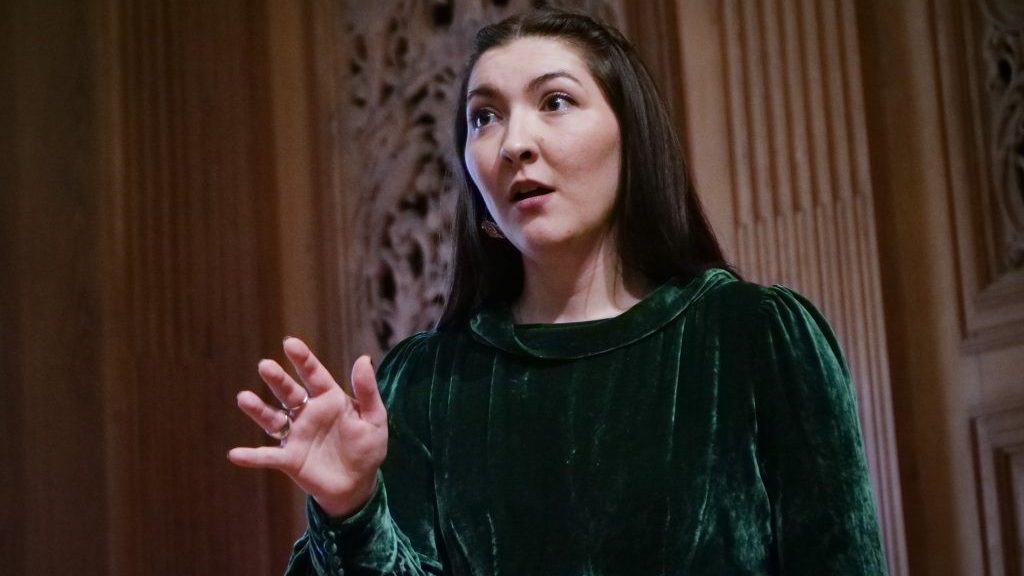
 (4 / 5)
(4 / 5)
Many Prizes to be found here from a wonderful trio of musicians. Mezzo Emma Robert’s has real pulling power, making the most of this fine afternoon at Wigmore. Proving many talents with a selection of Fauré, Brahms and Debussy in the first half. Fleur jette was a lush opener from Fauré, the German from Brahms and his Der Tod, das ist die Kyle Nacht was another treasure, solemn and resplendent. Emma has a warm mezzo and at such a young age. Not always easy to get it right in the ladies lower register, but she pulls off so much with grace and poise. Debussy and his Chansons de Bilitis ended this set with warm heartedness and a vivid palette of colours and poetry.
Charles Tam arrive to wrap up the first half with two of Messiaen’s Vingt Regards sur l’enfant-Jésus. Le baiser dr l’enfant-Jésus started things off for anyone who had never heard this outstanding French composer…you’d be surprised. The main sort of Jesus melody is heard and transposed aside daring chromatic investigations aside daring expressionistic key play. Leading into the most acclaimed from the two hour piece: Regard de l’Esprit de joie. This tenth movement dazzles with sizzling Indian music, frantic high and low register pounding and an unwavering mastery of melody. Tam leaving this audience impressed, it has such a demand on the player, we too were tired after hearing it. My plus one knew little of Messiaen and was teary eyed by the end. Tam made an excellent choice here and it was a fine way to show his sweeping musicianship.
More of Emma and her companion on piano Jo Ramadam, who played everything with fine fingering and brezze. Schumann’s Myrthen got back to basics, heady Germanic style and sense of romance evaded the space. A choice of Sibelius songs proved Emma multi language skills further, these were fun and wry. Sanglots from Banalités by Poulenc was even more cheer and thrills. Emma really getting into the patter of the song. I want to hear her do more and Wagner!
Tam returned with a final offering, Liszt’s Fantasia quasi Sonata from Aprés une le tur du Dante. Half misery and half hope, the whole piece had the clamour you expect from Liszt. Hell and its layers evade the score effectively thanks to the composer’s cleverness. It didn’t quite complete the concert as an end piece, but I was caught by its passion and Tam’s real vitality, no score needed and his swaying motions throughout noteworthy.

